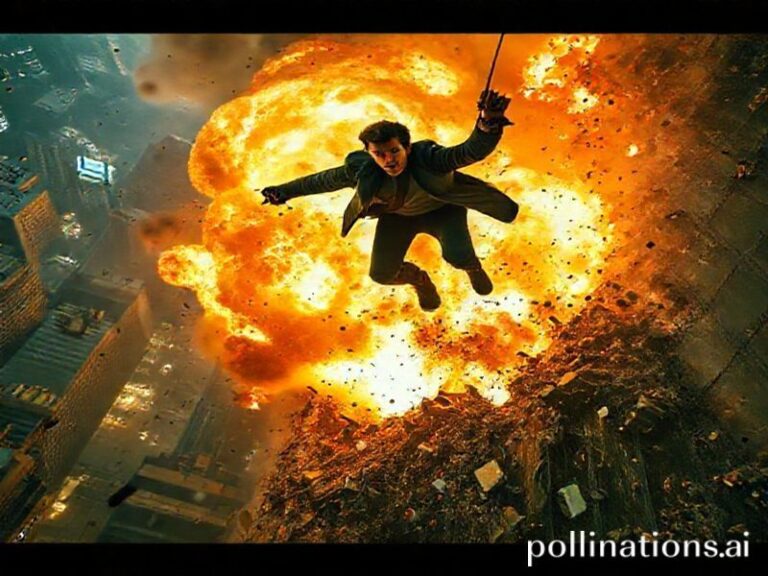Rangers vs. Mets: How a Routine Ballgame Became the World’s Most Honest Mirror
Global dispatch, Arlington, Texas – Somewhere between the tenth replay of a seagull dive-bombing a nacho tray and the thirty-eighth mention of “post-season drought,” the Rangers and Mets reminded planet Earth that, yes, the United States still exports baseball the way it exports Marvel films and questionable foreign policy. From a café terrace in Lisbon where the game flickered on a cracked iPad beside a half-finished pastel de nata, to the 3 a.m. ramen counter in Tokyo where two salarymen debated Jacob deGrom’s slider like it was a new fiscal stimulus package, the world watched Texas and New York perform their annual ritual of hope masquerading as destiny.
Conventional wisdom says this was merely an interleague tilt—American League vs. National League, cattle vs. subways, brisket vs. bagels. But conventional wisdom also once said the Titanic was unsinkable and that crypto was a store of value. In reality, Rangers vs. Mets served as a geopolitical Rorschach test: oil money versus hedge-fund money, swaggering expansion franchise versus legacy club that still brags about 1986 as if it were the fall of the Berlin Wall. If you squinted hard enough you could see the entire late-capitalist order distilled into nine innings: billion-dollar stadiums paid for by taxpayers who can’t afford the beer inside them, players earning more per at-bat than the annual GDP of Tuvalu, and a broadcast cutaway every six minutes to remind viewers the military flies F-35s overhead for…reasons.
Europeans, bless their regulation-addicted hearts, struggle to grasp why a sport without a discernible clock can still be called a “pastime.” Yet UEFA executives quietly envy the MLB’s ability to stretch three hours of actual action into a four-and-a-half-hour television property complete with seventeen pitching changes and enough commercial breaks to fund a small war. Meanwhile, Chinese streaming platforms—ever vigilant for soft-power footholds—picked up the feed, subtitled the banter, and inserted 15-second ads for EVs that look suspiciously like Teslas but cost half as much. Somewhere in Shenzhen, an algorithm just labeled Corey Seager’s swing pattern “actionable data.”
Back in the ballpark, the scoreboard did its best impression of objectivity: Rangers 5, Mets 3. Final. Somewhere in Caracas, a young infielder who trains on a cracked concrete diamond beside a barrio saw Marcus Semien’s opposite-field double and decided tomorrow’s blackouts are worth enduring. In Seoul, the KBO’s marketing department took notes on how to sell “nostalgia” to a country that rebuilt itself from rubble in a single generation. And in Moscow—well, the feed got pirated, obviously, because sanctions are merely a suggestion when there’s baseball to watch in a language you pretend not to understand.
The Mets, ever the tragic protagonists, exited stage left muttering about exit velocity and barreled balls, which in any other context would sound like a craft-beer review. The Rangers boarded their charter flight to whatever humidity-soaked corner of the Sun Belt awaits, confident their World Series rings still glint brighter than the Mets’ existential dread. Somewhere between them lies the thin line separating triumph from farce: one franchise finally climbed the mountain, the other keeps commissioning new base camps at the cost of a small hedge fund.
And yet, for all the sabermetric scripture and corporate pageantry, the game still hinged on a 22-year-old rookie from the Dominican who once taped milk cartons together for a glove. He struck out two sluggers on six pitches, then walked back to the dugout as if he’d merely swatted a mosquito. The universe, in its infinite indifference, yawned.
So what did Rangers vs. Mets mean on the wider canvas? Simply this: nations rise, empires fall, supply chains snap, and glaciers calve—but somewhere, two groups of millionaires in pajamas will keep throwing a sphere past a stick while the rest of us argue on the internet about whether the manager should have gone to the bullpen earlier. Civilization’s most honest update status remains: still at bat, still behind in the count, still pretending the next pitch will fix everything.







